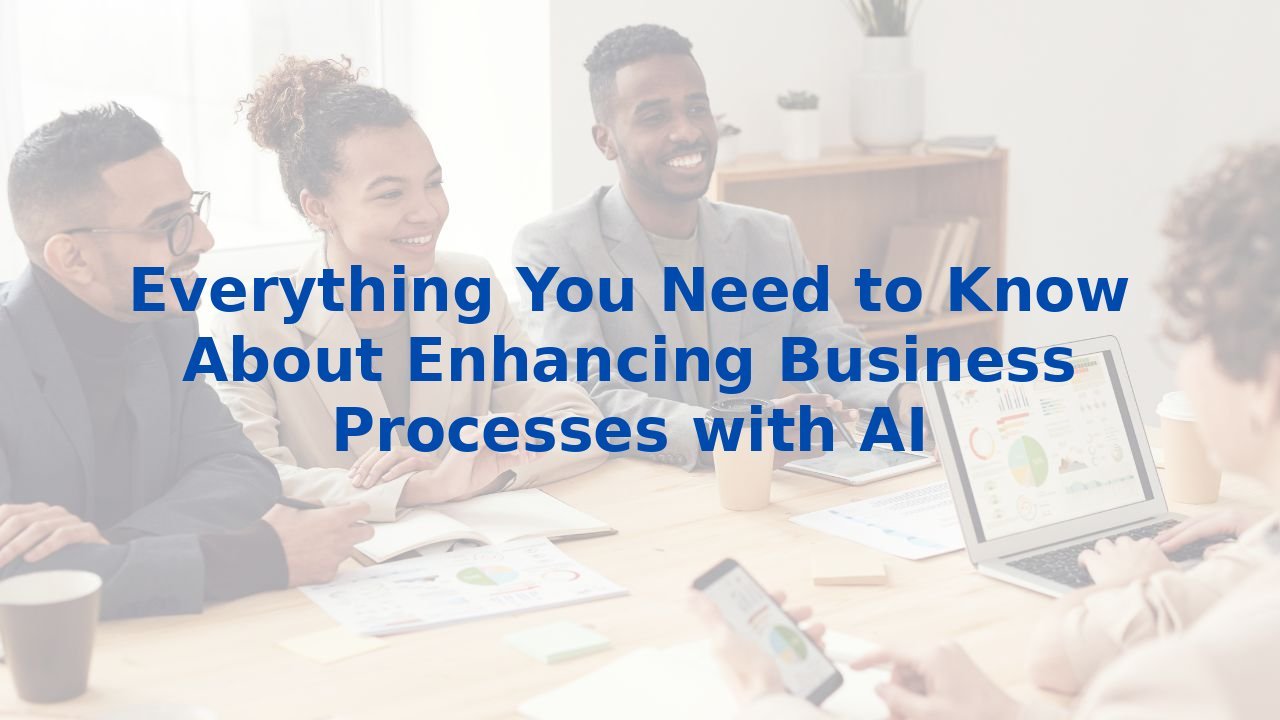Everything You Need To Know About Enhancing Business Processes with AI
Enhancing Business Processes with AI: A Comprehensive Guide
Introduction
In an era where speed and efficiency dictate the pace of success, embracing Artificial Intelligence (AI) is no longer a luxury but a necessity. The potential of AI to optimize operational efficiency and foster innovation is profound. This guide delves into various business processes that can be transformed through AI integration, highlighting the efficiencies gained and the landscape redefined by these technologies.
Understanding AI Integration
AI's integration into business processes is not just about implementing technology; it's about reshaping how organizations operate. Several key areas stand out, each ripe for enhancement:
- Data Analysis: AI's ability to process and analyze vast datasets is unmatched. Industries such as finance, healthcare, and retail benefit immensely as AI uncovers insights hidden within complex datasets that human analysts might overlook.
- Customer Service: The introduction of chatbots and virtual assistants transforms customer interactions. These AI-powered tools handle inquiries with ease, allowing human reps to concentrate on more nuanced challenges.
- Predictive Maintenance: Imagine a scenario where your equipment not only performs but anticipates failures. AI’s predictive maintenance capabilities significantly minimize downtime, streamlining operations.
- Marketing and Sales: AI-driven tools facilitate deep market trend analysis and personalize marketing strategies, ensuring that organizations remain agile and responsive to customer needs.
Benefits of AI Integration
The tide of AI integration brings a wealth of advantages:
- Enhanced Efficiency: By automating mundane tasks, organizations empower their employees to prioritize higher-value endeavors, catapulting productivity to new heights.
- Improved Accuracy: Automation through AI comes with increased precision, mitigating errors and enhancing the overall quality of output.
- Informed Decision-Making: Leveraging data-driven insights, businesses can navigate the waters of decision-making with confidence, steering towards strategic outcomes.
- Cost Reduction: Operational efficiency translates into financial performance. Moreover, by curbing task redundancies and optimizing processes, organizations can cut costs effectively.
Training Employees for AI
While the technological prowess of AI fascinates, human collaboration remains essential for its success. Investing in employee training is vital for realizing AI's true potential:
- Adoption and Integration: When employees understand the capabilities of AI, they're far more likely to adopt and integrate these tools into their workflows, ensuring a seamless transition and maximizing effectiveness.
- Enhanced Skills: Comprehensive training equips the workforce with the necessary skills to navigate and maximize AI tools. This not only enhances their versatility but also elevates the value they provide.
- Better Decision-Making: With knowledge of AI-driven insights, employees can better interpret data, leading to nuanced and informed decisions that propel the business forward.
Conclusion
The incorporation of AI into business processes signifies a monumental shift in the operational landscape. Enhanced efficiency, improved accuracy, and empowered decision-making are just the tip of the iceberg. However, these benefits are best realized through strategic training programs for employees, ensuring they have the tools to manage AI systems effectively.
As we stand on the precipice of an AI-driven future, it’s essential to remain proactive. Continuous learning, adapting to change, and fostering a culture of innovation will position organizations for sustained success. Dive into the world of AI, explore its possibilities, and witness transformative growth firsthand.
"The future of business lies in the convergence of humans and intelligent machines. The journey begins with understanding and embracing AI."



